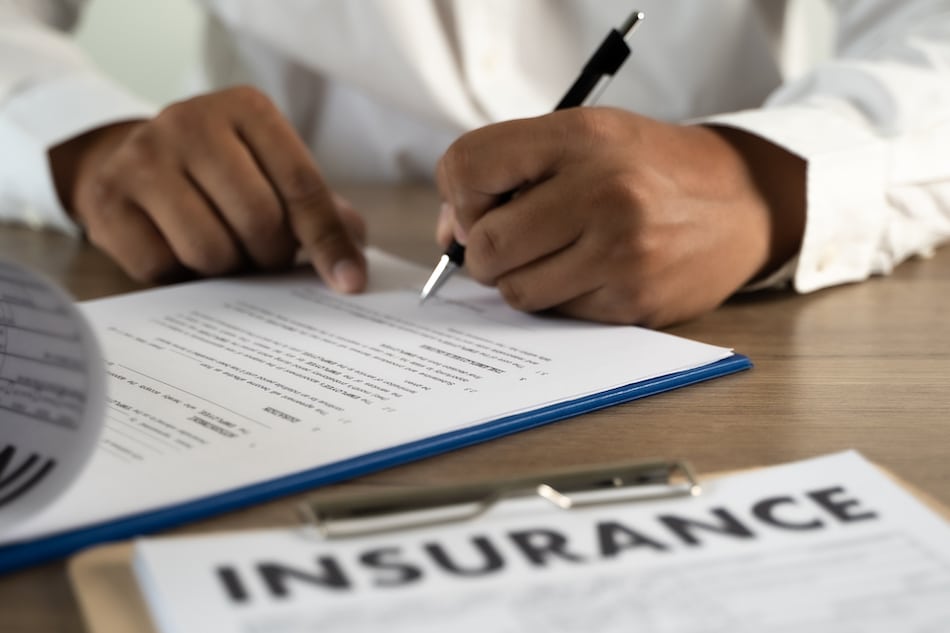Key Takeaways
Insurance coverage is an essential risk management tool. Commercial insurance protects your business from first- and third-party risks, such as property damage or liability claims. Uniquely, you buy a policy with the hope you never have to use it. But not having one when you need it can be devastating. On the topic of when should a risk be avoided, understanding the insurance claim process before you have to file a claim is invaluable. In this third part of our four-part Claims Series, we review what to expect during the process. Let’s dive in.
What to Do When You Have a Claim: 4 Steps
The first steps can vary by type of claim or loss. For example, a property damage claim, like a burst water pipe, might require temporary, immediate repairs to mitigate any further damage. On the other hand, a potential security incident will require the analysis of a trained forensic expert and legal counsel to determine if it rises to the level of a breach. In this scenario, one of the first things a business should do is file a claim. The good news is most insurance claims follow the same basic procedure. Let’s review the four steps in the business insurance claim process.
1. Assess and Respond to the Situation
The first step in any insurance claim is to assess the situation, especially in physical injury or criminal activity cases.
For example, if a worker at a manufacturing plant is injured, your first step is to get them the medical help they need. Likewise, if a thief steals internal servers from your technology company, you should first alert the police.
In less dire cases, you may not need to contact police or medical professionals immediately. For example, a tree falling on your office outside business hours probably doesn’t require emergency services.
When evaluating the viability of filing an insurance claim for your business, it’s crucial to factor in the intricacies of limits and deductibles. Not every incident necessitates a claim, especially if the projected cost for damage repair hovers around or is below your deductible. In such cases, it might be more prudent to handle the expenses directly instead.
Talking with your commercial insurance broker after a loss can help you decide if submitting a claim makes sense for you and your company. You can discuss the pros and cons with your broker, who can explain what to expect during the life of the claim and what impact, if any, it may have at renewal.
2. Collect and Document Information
Successful commercial insurance claims usually come down to good record-keeping. After a loss, you must document all pertinent information for your insurance company.
In general, the more information you can collect, document, and record, the better. Pertinent facts include:
- Date of the accident or loss;
- Location of the loss;
- An overview of the incident with details of the observed damage;
- Itemized descriptions of losses, such as lists of stolen property with identifying information or serial numbers or the square footage of damage to a location;
- Receipts and documents related to emergency repair efforts, including the cost of temporary repairs and actions taken to mitigate further risk;
- Any items involved in the accident, such as broken equipment in the case of a property damage claim;
- Photographs of the scene of the incident, or security footage, if available;
- Any witness statements or contact information;
- Copies of police reports or incident reports;
Some accidents will require immediate action to prevent further injuries or damage. Do your best to document the incident before making emergency repairs. Additionally, only make permanent repairs once filing a claim and talking with the insurance adjuster.
3. Contact and Communicate
After mitigating any immediate risks and collecting information about the incident, it’s time to contact the necessary parties. You should first contact your in-house legal team or risk management team. Depending on your organization, they may be in charge of further action.
Do not wait to notify your insurance carrier about a claim or potential claim. Your policy’s terms may vary, but notice is required as soon as reasonably practicable. If you wait too long after an incident to file a claim, the insurance carrier could deny an otherwise covered claim.
You may self-report claims directly to insurance carriers. If self-reporting, carefully review the policy for language and instructions on how and when to notify the carrier of your claim.
Alternatively, you may work with your insurance broker to report a claim. A dedicated broker will ensure all pertinent information is reported on your behalf under the appropriate policy(ies). Some brokers may even have a dedicated portal such that you can start the process at a moment’s notice. For example, you can notify Founder Shield 24 hours a day, any day of the week, through Found Shield’s online claims portal.
Additionally, if you think you need legal representation after an incident, be sure to let your insurance company know. If the insurance carrier has the duty to defend you or your company, they will assign counsel on your behalf. But even if your policy permits you to appoint your own counsel in defense of your claim, all insurance carriers impose reasonable rate caps.
4. Be Objective
While it’s important to document all aspects of the incident, you only want to provide the insurance company with facts. This approach means staying as objective as possible. Document the incident and any evidence of damage. Avoid speculating on the incident, admitting guilt, or volunteering additional information.
For example, you should refuse to speak with reporters if someone is injured in an accident at your office. Instead, contact your organization’s legal counsel for advice on the matter.
Please talk with your assigned claims adjuster and your appointed counsel before making contact with the claimant or their lawyers.
Tips for Smoother Commercial Insurance Claims
Before you have a potential incident or claim, you should already know what to do and be familiar with the process. Reading your policy and talking with your insurance broker is well worth your time. Additionally, your broker can help you understand what your policy may or may not cover.
A little planning and due diligence in advance can save you future headaches and unpleasant surprises. For example, do you know if your policy provides claims-made vs. occurrence coverage? Generally, claims-made coverage requires notice to the carrier while the policy is in force and during the policy period or extended reporting period, if applicable. Occurrence coverage, on the other hand, may accept claims after the policy period, but the covered incident must have occurred while the policy was active. This material distinction affects how long you have to file a claim for an incident.
Understanding the details of what coverage your company needs can be confusing. Founder Shield can help you find the right policies for your business risks and needs, including coverage for epli claims.
What to know more about commercial insurance? Talk to us! Please contact us at info@foundershield.com or create an account here to get started on a quote.








